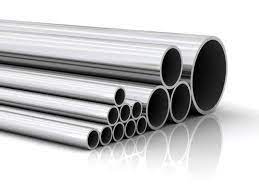In materials engineering, Stainless Steel 304 has emerged as a versatile and widely used alloy, and its application extends prominently to the domain of pipes. Stainless Steel 304 Pipes play a pivotal role in diverse industries with their impeccable corrosion resistance, durability, and aesthetic appeal. This blog post explores the key features, manufacturing processes, and wide-ranging applications that make Stainless Steel 304 pipes a preferred choice in modern piping systems.
Key Features of Stainless Steel 304 Pipes
Corrosion Resistance -
Stainless Steel 304 is renowned for its exceptional corrosion resistance, making it ideal for applications where exposure to corrosive elements is common. The formation of a passive oxide layer on the surface provides a robust shield against rust and corrosion.
Durability and Strength -
Stainless Steel 304 Pipes exhibit high durability and strength, ensuring reliable performance under various operating conditions. This makes them suitable for industrial applications ranging from chemical processing to water treatment.
Aesthetic Appeal -
Beyond its functional properties, Stainless Steel 304 boasts a sleek and modern aesthetic appeal. These pipes' smooth and reflective surface makes them suitable for architectural applications where functionality and visual appeal matter.
Ease of Fabrication -
Stainless Steel 304 is known for its excellent formability and ease of fabrication. This property allows for the creation of intricate designs and customized solutions, making it a versatile material in the manufacturing of pipes.
Manufacturing Process
The production of Stainless Steel 304 Pipes involves several key steps -
Raw Material Selection -
High-quality Stainless Steel 304 is chosen as the raw material for pipe manufacturing. This alloy consists of iron, chromium, nickel, and small amounts of other elements.
Pipe Formation -
Depending on the desired specifications and dimensions, the raw material is shaped into pipes through hot extrusion, cold drawing, or welding.
Heat Treatment -
The pipes undergo heat treatment to relieve stresses, improve mechanical properties, and enhance corrosion resistance.
Surface Finish -
The final step involves surface finishing, where the pipes are polished to achieve the desired appearance and smoothness.
Applications of Stainless Steel 304 Pipes
Chemical and Petrochemical Industries -
Stainless Steel 304 Pipes find extensive use in chemical and petrochemical processing, where resistance to corrosion from harsh chemicals is crucial.
Water Treatment Plants -
These pipes are employed in water treatment plants for transporting water and other fluids, benefiting from their corrosion resistance and hygiene properties.
Food and Beverage Industry -
Stainless Steel 304 Pipes are preferred in the food and beverage industry due to their inert nature, preventing contamination of consumables.
Conclusion -
Stainless Steel 304 Pipes are a testament to modern piping systems' seamless integration of functionality and aesthetics. Their corrosion resistance, durability, and versatile applications make them indispensable in industries ranging from chemicals to architecture. As technological advancements continue, Stainless Steel 304 Pipes are likely to maintain their prominence, contributing to the efficiency, safety, and aesthetic appeal of diverse piping systems across the globe.





Comments